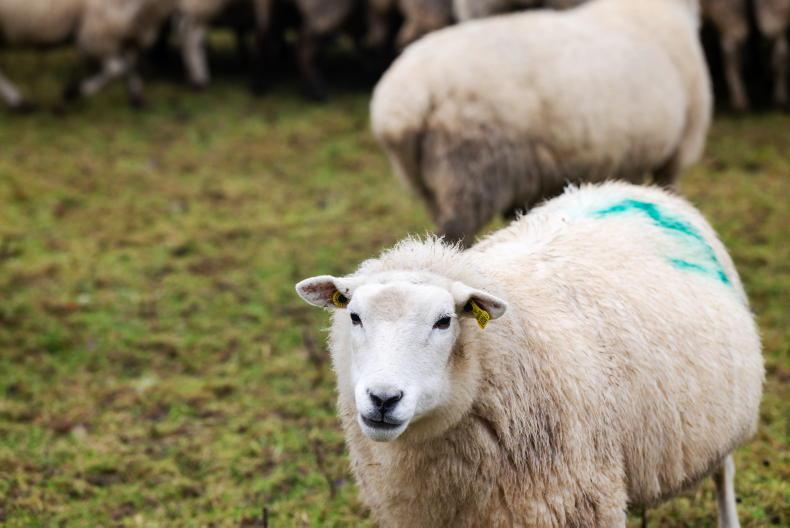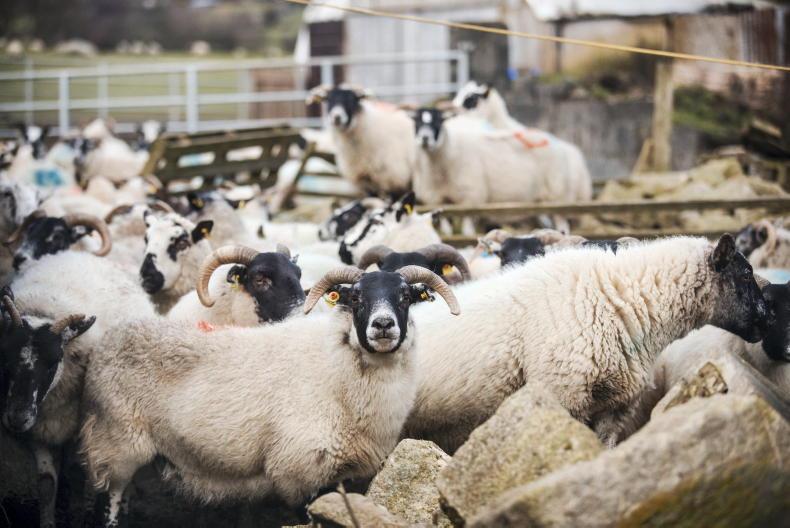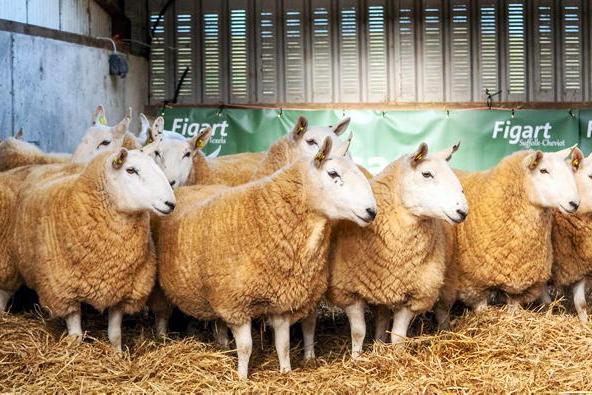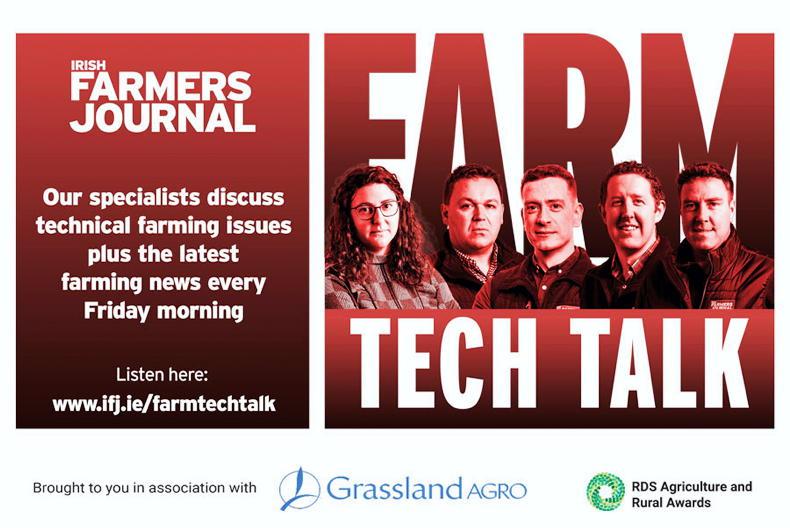Patrick and Donna Brickley run a commercial flock of 200 Texel-cross-Lleyn ewes at Larragan Farm, Clonaslee, with help from their two young children, Alanagh and David.
They introduce Lifeline Lamb and Ewe buckets to ewes in the first week of January, approximately 10 weeks before lambing in March.
Supplement
It is the ideal feed supplement for pregnant lambs, especially in the last trimester, as it is the only product patented to boost colostrum quality by 25%, says Frank Conway, sales manager at Uniblock, which manufactures Lifeline.
Every sheep farmer knows that colostrum is the cornerstone of lamb health, performance and profitability.
“As the newborn lamb is born naïve of any antibodies, it is totally reliant on prompt access to good-quality colostrum to provide passive immunity,’’ says Frank.
That colostrum is their first source of nutrients and immune protection to help protect against common diseases, such as scours, watery mouth and pneumonia, within the first few weeks of life.
Careful balancing of nutrition in the pre-lambing period is essential to prevent the consequences of underfeeding or overfeeding to both ewe and lamb health.
Success
“The pre-lambing period is one of the most significant points in the sheep calendar and can determine the success of the subsequent lambing period,’’ Frank points out.
The Brickleys have been using Lifeline for 20 years – it was first used by Patrick’s father who saw the great benefits it had for the lamb and the ewe.
“When I took over running the farm, I considered changing over to a competing product as it was being heavily marketed at the time,’’ Patrick admits.
“However, my father queried why, pointing out that lambing was going well with no prolapses and plenty of beastings in the ewes. It is still working well after 20 years, so why change what evidently works?”
Patrick says he would definitely recommend that pregnant ewes are provided with Lifeline Lamb and Ewe buckets
The product contains immune-boosting ingredients that stimulate the ewe’s immune system.
It is important to consider the ewe’s immune status as well as her nutritional requirements during the final six weeks of pregnancy, Frank advises.
“For one, it will help ensure lambs have the best start in life, and it also can save time during the busy lambing period,’’ he says.
Lifeline Lamb and Ewe, which has an ME value of 14mg/kg DM, provides ewes with protected energy and protein sources.
Growth
Seventy-five percent of lamb growth occurs in the final six weeks of pregnancy at a time when colostrum production, udder development, hormonal changes and lamb wool deposition all put extra strain on the ewe’s energy and protein requirements.
Without the correct pre-lambing nutrition, ewes are at high risk of metabolic diseases such as twin lamb disease, poor mothering behaviour, reduced milk yield and poor colostrum quality.
“Weaker lambs can be produced as a result of any of these illnesses around lambing, so it is always best to plan ahead and provide adequate nutrition to meet these demands in the last weeks before birth,’’ says Frank.
Lifeline Lamb and Ewe contains high levels of lactose, protected soya and a range of yeast products to improve lamb vitality, he adds.
“Having a lamb that is vigorous at birth, where it gets up and suckles quickly, makes a huge difference to lamb survival and health.’’
Nutrients
In addition to all the essential nutrients and trace elements required during pregnancy, Lifeline Lamb and Ewe is also formulated with 100% protected hydroxy zinc – in its protected form it is much more available to the ewe.
The Brickleys buy 90 18kg buckets from Midland Veterinary at Tullamore at the start of the season and offer it to the ewes for approximately 70 days before lambing; this means that ewe consumes approximately 115g/head/day.
“I really like the Lleyn ewes as they are great mothers and have great feet compared to other breeds, and with the help of Lifeline Lamb and Ewe they produce plenty of beastings,’’ says Patrick.
He believes that one of most important factors for a successful lambing season is to have ewes in the optimum condition; they mustn’t be too fat or too thin.
“Weather plays a huge part too and good preparation prior to lambing sets you up for the season,’’ says Patrick.
In the run-up to lambing, his ewes graze if there is a good supply of grass; if not, they receive plentiful quantities of first-crop hay and whole red beet, which he says is soft and easy on the ewes’ teeth.
Lambing is outdoors, at the foot of the Slieve Bloom mountains. The ground is very free-draining, as it is on a vein of an esker.
If ewes have more than two lambs, the triplets and quads are hand-reared by Donna on Ewe-reka, a milk replacer made with ewes' milk and manufactured by Bonanza Calf Nutrition.
“We are delighted with Ewe-reka,’’ says Patrick. “There is no sediment at the bottom of the feeding vessel, the lambs perform extremely well on the product and Donna no longer has any skin reaction to handling the milk powder, which she had with the product we used previously.’’
Lambs are sold through the Offaly Producers Group - collected in Killeigh, Co Offaly, and slaughtered at Irish Country Meats, Camolin, Co Wexford.
Patrick says that, overall, he is very happy with both lamb and ewe performance.
He plans to continue to reap the benefits of Lifeline Lamb and Ewe in the flock in the important last weeks leading up to lambing.
To find your nearest stockist, please click here.









SHARING OPTIONS